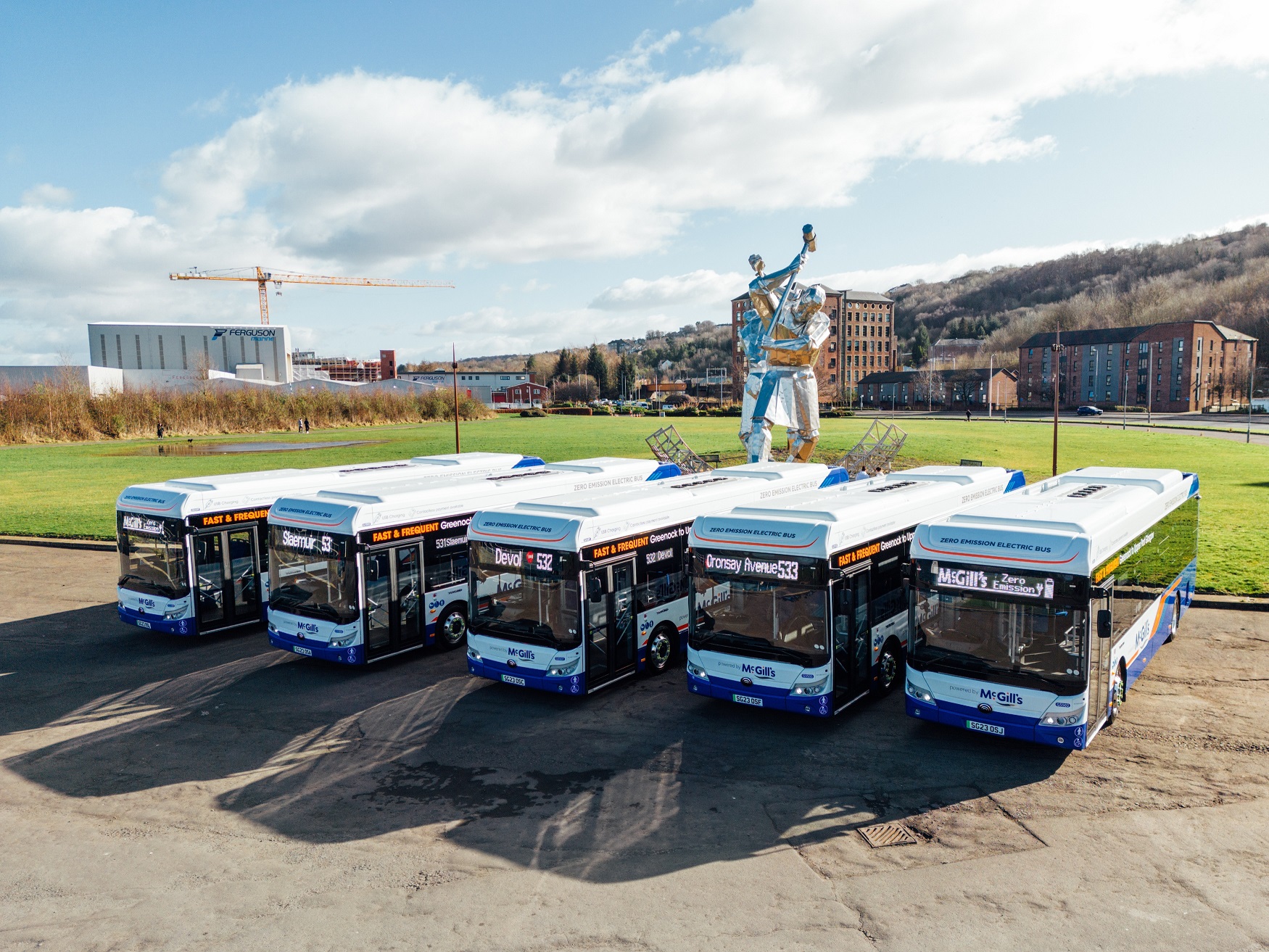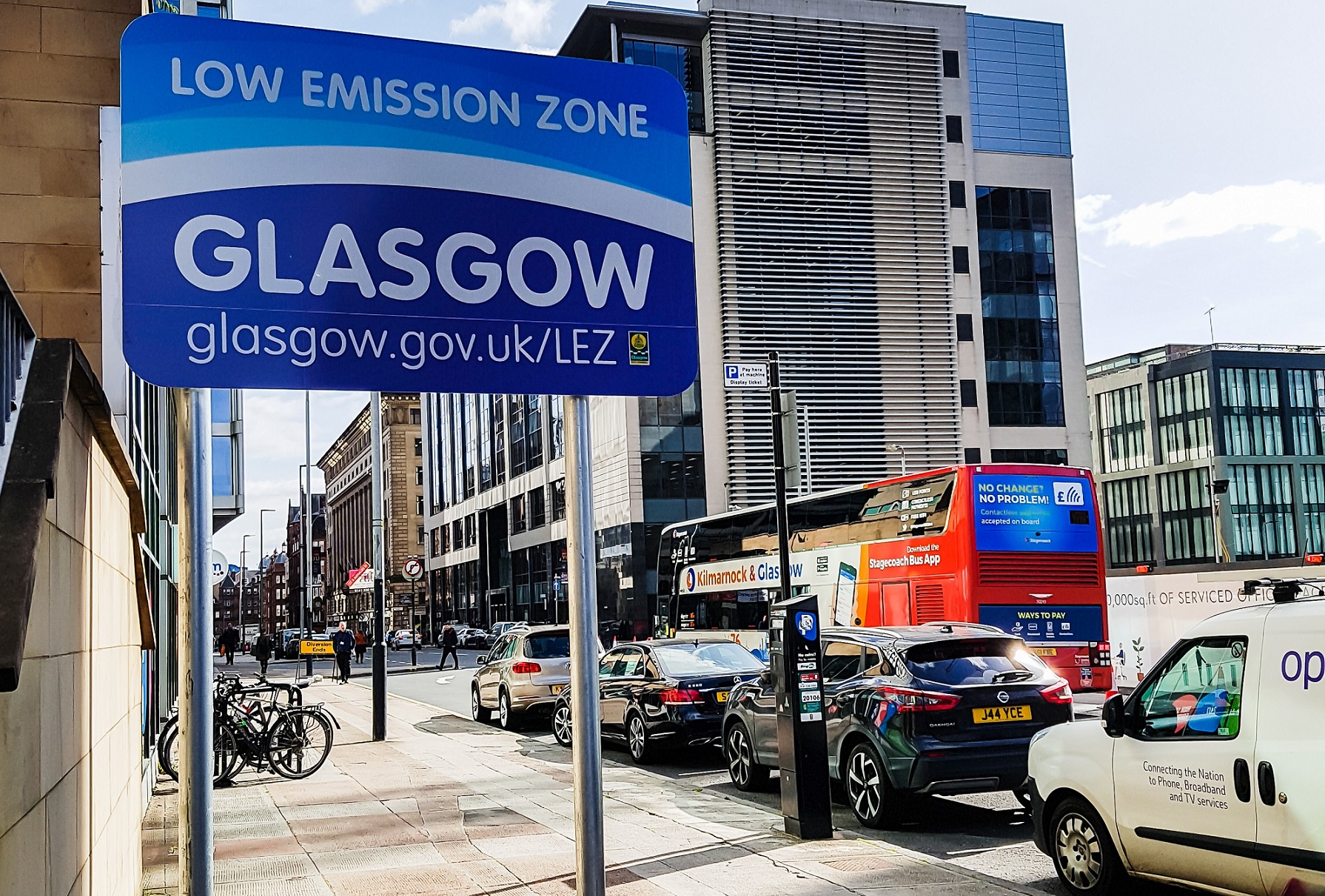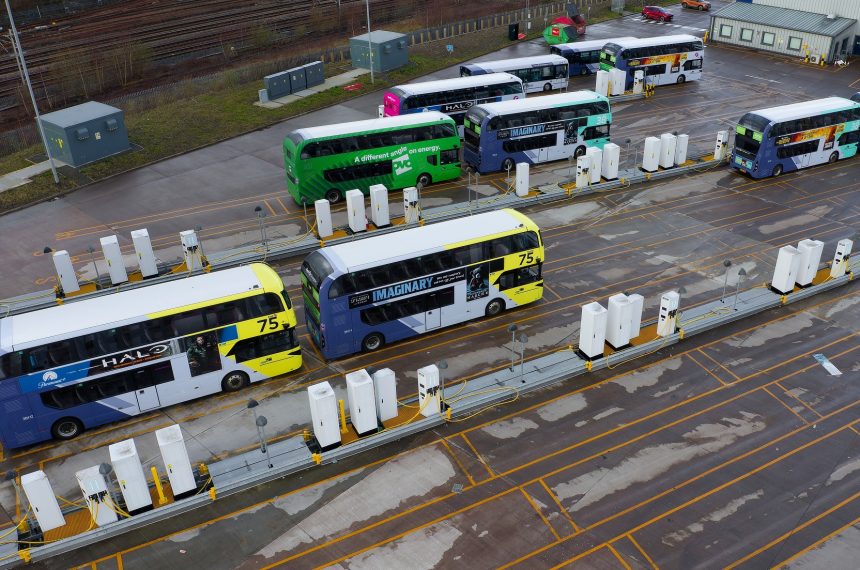The process of franchising bus services in Strathclyde should be initiated and long-term operation under either the current mechanism or through voluntary partnerships should be ruled out, a report by Strathclyde Partnership for Transport (SPT) has recommended.
Franchising will thus now be among options for reform consulted upon by SPT if the report is approved at a meeting on 15 March. The document claims that reregulation would “have the most beneficial effects for the delivery of enhanced [bus] service provision” in Strathclyde.
It also recommends that work on Bus Service Improvement Partnership (BSIP) arrangements, consideration of development of a “small-scale” municipal operator (or operators), and ongoing engagement with stakeholders on delivery of Bus Partnership Fund objectives should continue alongside franchising scoping.
Consultation on those recommendations will take place over six weeks in April and May, with the results to be reported to SPT “later in 2024.” Arriving at the recommendations follows appraisal of various approaches to bus service delivery.
Acknowledged in the report is that the appraisal identified “an indicative high-level estimate of £45-85 million per annum additional subsidy to deliver a regional franchise,” although it floats possible change to that figure if franchising is focused on “a specific area or routes.”

McGill’s Bus Group has questioned the financial viability of franchising, saying that its adoption in Strathclyde could create a “£100 million annual black hole for the Scottish taxpayer.”
In October 2023, McGill’s co-owner Sandy Easdale was furiously critical of advocacy from various bodies for bus franchising in the region. Mr Easdale’s earlier allegation of that shift amounting to “business confiscation” has been repeated after publication of the SPT report.
McGill’s CEO Ralph Roberts – long a vocal critic of franchising – adds that the operator “would take this to every court in the land and beyond” if reregulation was adopted. He describes franchising as “a power trip for politicians and quangos, most of whom never set foot on a bus.”
Mr Roberts claims that nothing within franchising proposals will address declining bus usage in the region, which he says has occurred because of a lack of bus priority. He has called on SPT to “remove buses from congestion and take business confiscation off the table.”
The SPT report contains various caveats around franchising in addition to its expected draw on funds, such as feasibility, processes, uncertainty, and “risk sharing.”
However, it states that reregulation would “provide the greatest opportunity to deliver the objectives of the Regional Transport Strategy and would closely align with initiatives of… national significance, such as the Clyde Metro project.”
Potential to franchise bus services in Scotland was enabled by the Transport (Scotland) Act 2019. Appraisal criteria in the SPT report state that the approach would deliver enhanced benefits in measurables that include service quality, affordability, reliability and ticketing when compared to other reform options to be consulted on.

The SPT document also offers that under franchising in Strathclyde, the indicative bus PVR would increase by 300 and that indicative annual kilometres operated would grow by up to 25 million. Total fare revenue benefits per annum are cited as being up to £7 million.
It also posits that via a BSIP approach, 200 vehicles and up to 10 million kilometres would be added to the Strathclyde bus network, but annual total fare revenue benefits would be negative. Per-annum patronage uplifts are presented as 20-25 million for BSIP and 35-40 million for franchising.
In acknowledging the possibilities of a BSIP-based approach, the report claims that its success “would be wholly dependent on early positive and ambitious engagement and agreement between partners,” and suggests that any delay or “reluctant behaviour” by those “would fundamentally undermine the BSIPs’ credibility and successful delivery.”
It continues: “On balance, the positives outweigh these potential negatives, but it would be remiss not to acknowledge the question marks [that] would ultimately remain.”
In his attack on franchising, Mr Roberts says that senior SPT figures “have sat on their hands” around tackling congestion. He adds: “Politicians want to play fast and loose with taxpayers’ cash, as we have seen over ferries, Prestwick Airport, and the deposit return scheme.
“They have no idea [of] how to run a bus company, and should address the issues that are in their control.”
Suggested in the report is that it could take up to seven years for franchising to be taken to the point of implementation on a regional scale in Strathclyde at a cost of c.£15 million, although that could be reduced “by initially targeting selected parts of the region.”



























